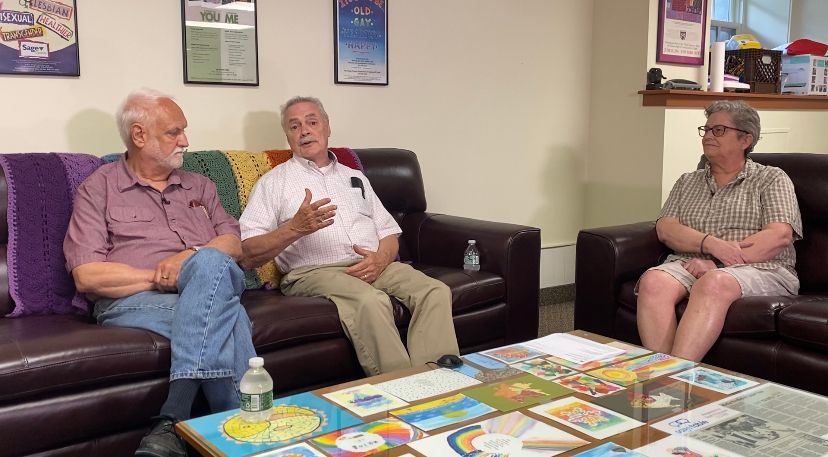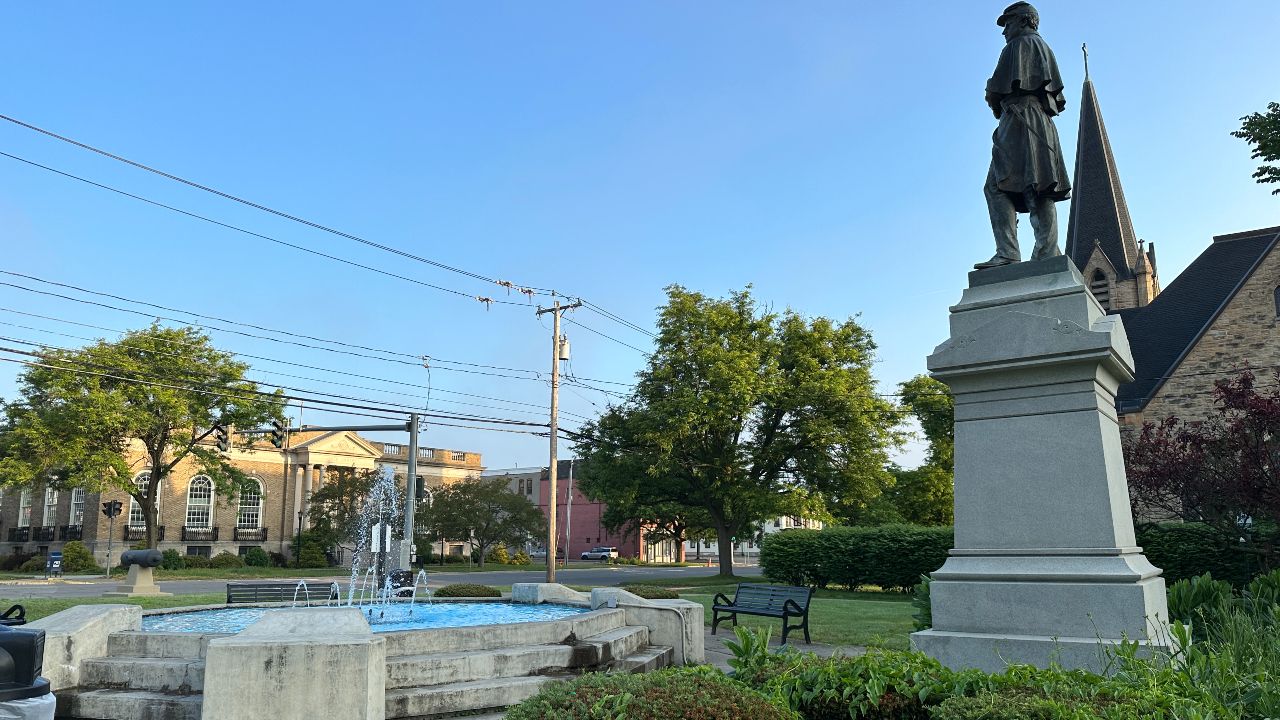The LGBTQ acronym itself means Lesbian, Gay, Bisexual, Transgender and Queer. In groups of emerging, adults, the “Q” can sometimes mean questioning. And in some instances, a plus is added to include additional people.
If you’re on the younger side, you probably only know of the LGBTQ community by this or a similar acronym. If you’re a bit older you may remember a different version, or even when it was simply called the ‘gay rights’ movement.
“There’s been a lot of evolution in the way that our communities are described and part of it is because there’s been quite an evolution in society,” said Luca Maurer, Ithaca College’s executive director of Student Equity Inclusion & Belonging.
So where did the acronym as we know it as today come from?
Maurer says the terms themselves came about as a way for people to claim their own identity at a time when LGBTQ people were in some cases still being referred to by medical terms that wrongly suggested mental illness.
“I remember being on a campus in a college student organization where there was discussion about adding an ‘L’,” he said. “There were lots of folks who were like ‘everybody knows gay sort of refers to everyone.’ Some of the women said ‘it doesn’t’ and we have our own letter.”
While you may know and understand the meanings of the individual letters, we asked Maurer how they came to be linked together. He says much of it comes down to similar experiences shared over the decades since the push for equal rights began in the late 1960s and early 1970s.
“A number of the ways the transgender people are being demonized by some folks with political motives today are the exact same ways that gay and lesbian people were demonized 40 or 50 years ago,” he said. “The same kind of language like, ‘should transgender people exist?’ well, transgender people do exist.”
In the early 1970’s he says it was actually trans people of color who were in many ways leading the charge for what, as we mentioned, was at the time called “Gay Rights.”
That bond has endured over the ensuing decades and now that he says trans people are finding themselves in that political crossfire, it only makes sense to continue to move forward together as one community.
“The strategies, the policies, the laws, and the practical things that those folks need; by raising them up, we will be addressing the needs of everyone who has more privilege,” he said.
While some may say this terminology is ever evolving and difficult to keep up with, Ithaca College Pride Fellow Grace Dosdall says she would like to see the stigma around being corrected reduced, thereby encouraging people to learn.
“If someone uses the wrong word, I just say, ‘actually I just recently learned that this word means this, so this group people doesn’t like it when you say that word,,” she said, recommending a response of, “oh cool, I didn’t know that. I won’t use it again.”
She suggests simply taking notice, and using the proper terms moving forward rather than becoming upset or acting defensively.
“It’s not personal,” she said. “No one is calling you a bad person.”
Maurer adds that if you don’t know, never be afraid to ask as long as it is an appropriate time to do so.
“As a human being, I want to refer to people as the words that they used to refer to themselves,” he said. “I want to be the most respectful that I can be, and that frequently means even in my role that I need to ask. That is a good thing.”
For more information, and more resources you can visit the Ithaca college LGBT center website or GLAAD.org.








